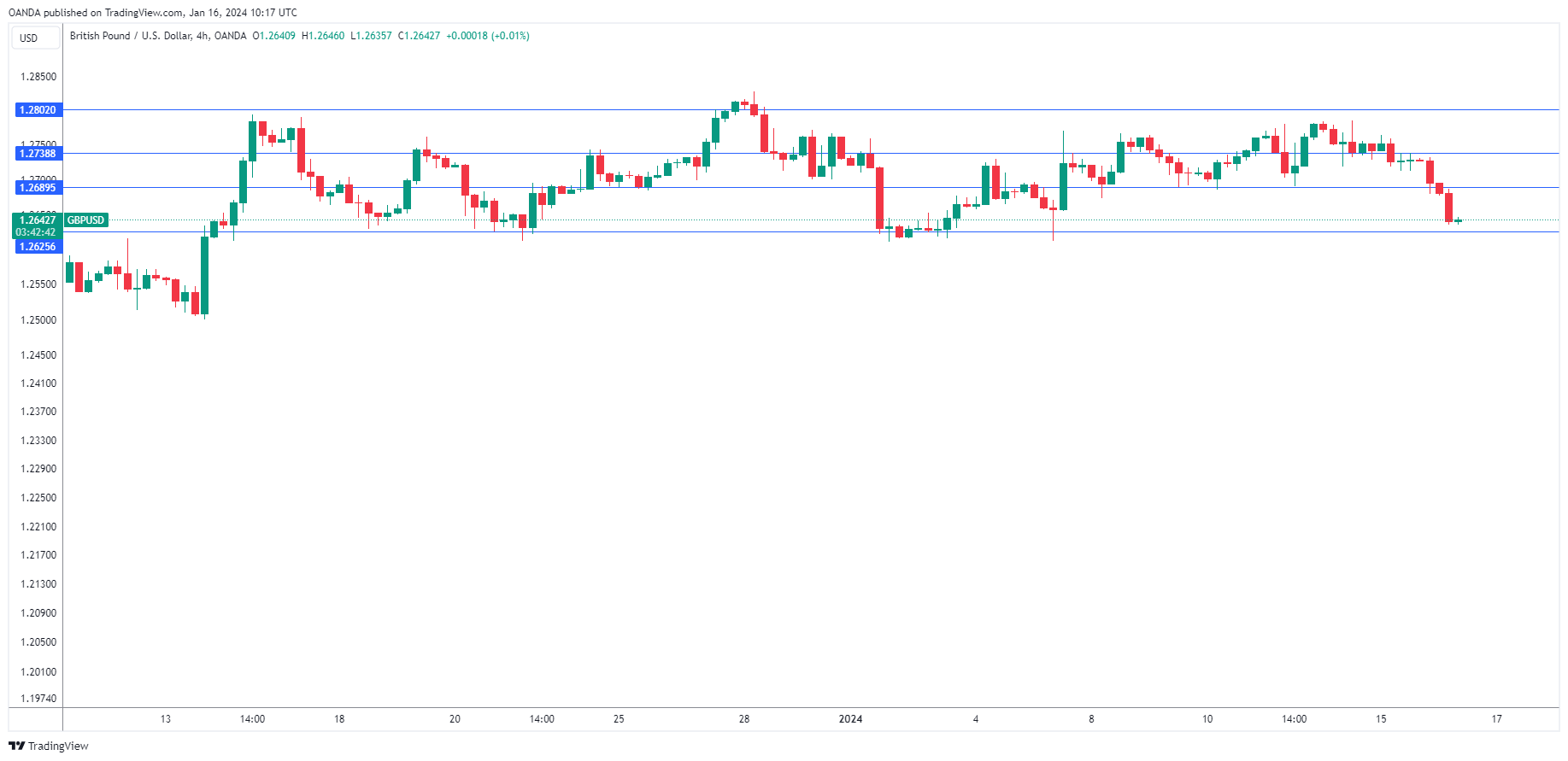- UK wages ease to 6.5%
- GBP/USD falls
- UK to release inflation on Wednesday
The British pound is sharply lower on Tuesday after a solid UK employment report. In the European session, GBP/USD is trading at 1.2641, down 0.68%.
UK Wage Growth Falls Sharply
The UK employment report indicated that the labor market remains solid while wage growth is falling rapidly. The unemployment rate was unchanged at 4.2% and the economy added 73,000 jobs in the three months to November, following 55,000 in the previous release and above the market estimate of 50,000.
The key segment of the employment release was wage growth. Average earnings including bonuses in the three months to November eased to 6.5%, down from 7.2% a month earlier and 8.5% four months ago. The steady fall in wages supports the case for the Bank of England to cut rates in the next few months and the British pound has responded with sharp losses. Wage growth is a key contributor to inflation and the BoE has been concerned that high wage growth could lead to a wage-price spiral. The drop in wage growth won’t put the BoE completely at ease, as wage growth remains high, but the downward trend is an encouraging sign in the battle against inflation.
The wage growth data didn’t affect market expectations for a rate cut, which remains high. Investors have virtually fully priced in a quarter-point cut by May with four or five additional cuts expected by the end of the year. The BoE has pushed back against these expectations with Governor Bailey sticking to the ‘higher for longer’ stance, in which the BoE would maintain rates in restrictive territory in order to push inflation lower. The BoE has maintained the cash rate at 5.25% three straight times and meets next on February 1.
The UK release the December inflation report on Wednesday. After a sharp drop in November (4.6% to 3.9%), inflation is expected to tick lower to 3.8%. Core CPI is projected to slow to 4.9%, down from 5.1% in November.
GBP/USD Technical
- GBP/USD is testing support at 1.2689. Below, there is support at 1.2625
- There is resistance at 1.2738 and 1.2802
